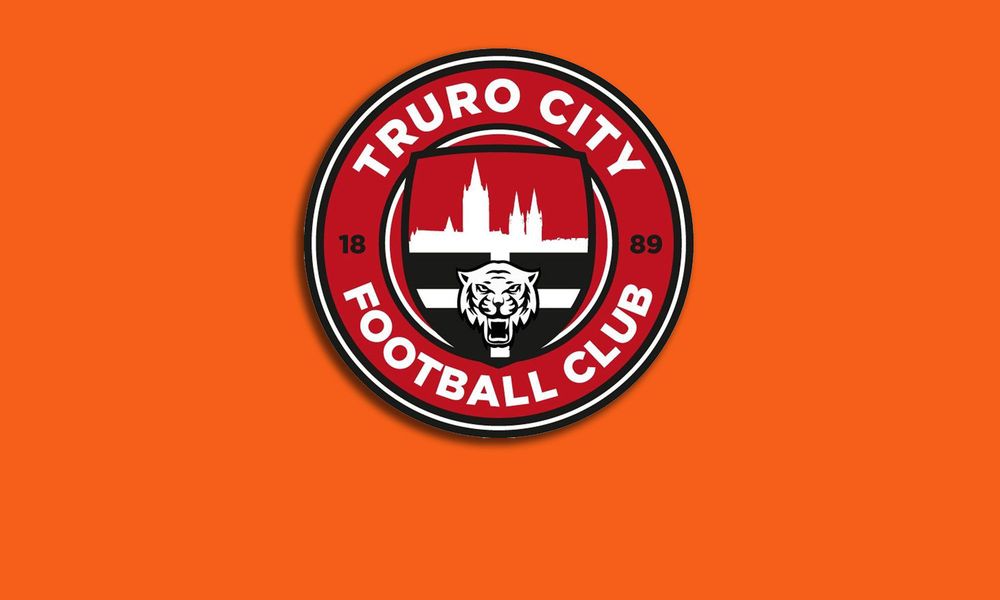
Truro City became one of the founder members of the Cornish County FA when they attended the meeting at the Royal Hotel in Truro on 18th September 1889 when the CCFA was founded.
Other clubs present were: Porthcurno, Penzance, Probus School, Liskeard, Dunheved School, Torpoint and Millbrook. City’s first recorded match was played at Truro College against Penzance on 4th October 1889, when they won 7-1.
Further games were played at Tolgarrick, adjacent to the existing Treyew Road ground. They have also played at Kenwyn and Chapel Hill.
Their first trophy was won in 1895 when they won the Cornwall Senior Cup beating Launceston 5-0.
City have won the Cornwall Senior Cup a record 15 times including 1930 when the cup was shared with Saltash Stars.
The final had been drawn and Saltash could not raise a team for the replay due to some of their players having service commitments.
Truro did offer to play and let Saltash include some guest players but the CCFA ruled the trophy should be shared, with each club holding the trophy for six months.
City joined the newly-formed Cornwall Senior League in 1931 after leaving the Plymouth & District League, along with other Cornish clubs, due to the refusal of the Cornish clubs to pay more than 50% of the Devon clubs’ travelling expenses.
Because of the lack of interest by their supporters – gates were very low in the Cornwall Senior League – City decided to re-join the Plymouth & District League in 1934.
As a result of leaving the Cornish Senior League they were barred from entering the Cornwall Senior Cup.
They had proposed to run a reserve team in the Senior Cup. However, at a CCFA meeting on a proposal by Lostwithiel which was seconded by Bodmin Town, Truro were refused admittance to the cup.
They appealed to the FA but received a reply to the effect that the FA could not interfere in a domestic dispute between local clubs in Cornwall.
It was to be 1938 before they were re-admitted and winning the Senior Cup the same season.
They had won the Cornwall Senior League in its first two seasons (1932 & 1933). The P & D League was won in 1937. But in 1931 - the season before they first left the P & D League - they achieved one of the finest run of results in their long history.
In a period of 15 days, they played nine League games, winning eight and drawing one.
Their last game was at Dartmouth, which they won 3-2 and in doing so became runners-up, three points behind champions Royal Marines and three in front of third-placed Saltash Town.
The Durning Lawrence Charity Cup which Truro City gave to the county – has been won 11 times, the first time in 1912 and the last time in 1981.
When the South Western League was formed in 1951, City were one of the founder members but they did not meet with immediate success, having to seek re-election for the first two seasons.
They have had to seek re-election twice more; 1982 and 1983. Their first championship came in 1960/61 and they have been champions four times since: 1969/70, 1992/93, 1995/96 and 1997/98.
The South Western League Cup has come to Treyew Road on three occasions: 1959/60, 1966/67 and 1997/98.
The league’s Sporting Trophy was won in 1974/75 and 1988/89 and the Best Ground Trophy in 1995/96.
At the end of the 1974/75 season, City were forced to leave the South Western League due to the fact that part of their Treyew Road ground had been used for a road-widening scheme and it was 1978 before they were re-admitted
The Cornwall Combination League was won in 1994/95, 1998/99, 2005/6 and 2007/8 and the Combination League Cup has been won on nine occasions: 1968, 1978, 1987, 1988, 1999, 2000, 2001, 2005/6 and 2007/8.
The Evely Cup has been won seven times: 1968, 1978, 1986, 1988, 1999,2000 and 2005/6
Back in 1929/30 the City `A` team won the Western Division of the County League and retained the championship for the next two seasons.
In late 2004, the club was acquired by a new owner and in 2005/06 ended the season in runners-up spot and gained promotion to the Toolstation Western League.
The 2006/7 season was the most successful in the Club’s history. At the first attempt winning the Western League First Division by a record margin; retaining the Cornwall Senior Cup and capping the season by winning the FA Vase at the New Wembley Stadium with a 3-1 win over AFC Totton, the first time the Trophy had been won by a club playing at Step 6 in the Football Pyramid and in front of a record crowd of over 37,000.
Success continued in 2007/8 season with the first team winning the Western League, thereby becoming the first ever Cornish club to gain entry into Southern League football.
In addition, the reserve side experienced an all-conquering season, going right through the season without defeat and also gained promotion to the South West Peninsula League.
To cap it all, the club’s third team, consisting almost entirely of players under the age of 20, also gained promotion to the first division of the Falmouth/Helston League.
Season 2008/9 was another successful one with the first team winning promotion to the Southern League Premier Division as champions.
This meant that City equalled the British record with four successive promotions.
In Season 2009/10, the club finished a very creditable 11th in the first year at this new level and were then better prepared to go forward again in the next season.
Season 2010/11 proved to be another momentous one. Vying for the league lead for most of the season with favourites Salisbury City, Truro were finally crowned champions by 4 points after a fabulous 6-0 win away at Salisbury and finishing the season with seven straight victories ensuring Conference South football for the first time.
This set a new British record in that no senior club had ever previously won five promotions in six seasons.
Season 2011/12 was a year of consolidation at this higher level finishing 14th in the club’s first season of Conference football.
In season 2012/13, progress was very difficult with the team being hampered both by a 10-point deduction and a league transfer embargo.
The club’s very survival was in serious doubt until in October 2012, when the club was saved by the last-minute intervention of two local businessmen.
Unfortunately, the club was relegated at the end of the season but it was lucky to be alive thanks to the new owners after the traumas of the recent past.
A successful spell at the end of the 2013/14 season brought some stability to the club and they gained promotion in the 2014/15 season via the play-offs, beating Hungerford Town 1-0 in the semi-final and St Neots Town 1-0 in the final.
The 2015/16 season will be the second time Truro has played at this level.
In season 2015/16 the club finished fourth in the National League South and reached the play-offs.
In season 2016/17 the club finished 19th in the National League South but there was an upturn in fortunes as the club reached the First Round Proper of the FA Cup losing 3-1 to Charlton Athletic at The Valley.
Truro also found ourselves amongst the leading pack throughout the campaign before losing in the play-offs.
The eve of the 2018/19 season saw Truro move from Treyew Road to ground-share with Torquay United.
In June 2019, the club was sold to the Cornish Pirates, via a business transfer under an asset deal.
This wiped the historical slate clean, heralding the start of an exciting new era.
The Cornish Pirates are a professional rugby team, who have played in the English Championship, the league below the Premiership, since 2002.
The Pirates engaged the highly experienced Alex Black as their football consultant to lead the acquisition and he remains in this role.
Colin Groves (NZ) and Rebecca Thomas, directors of the Cornish Pirates form the new Board, with club stalwart Deba Sidhu stepping up into the key role of club secretary.
The two Supporters clubs, `Officials` and `TISA`, merged into one new body TRU-ST with a new committee.
Ian Stonebridge
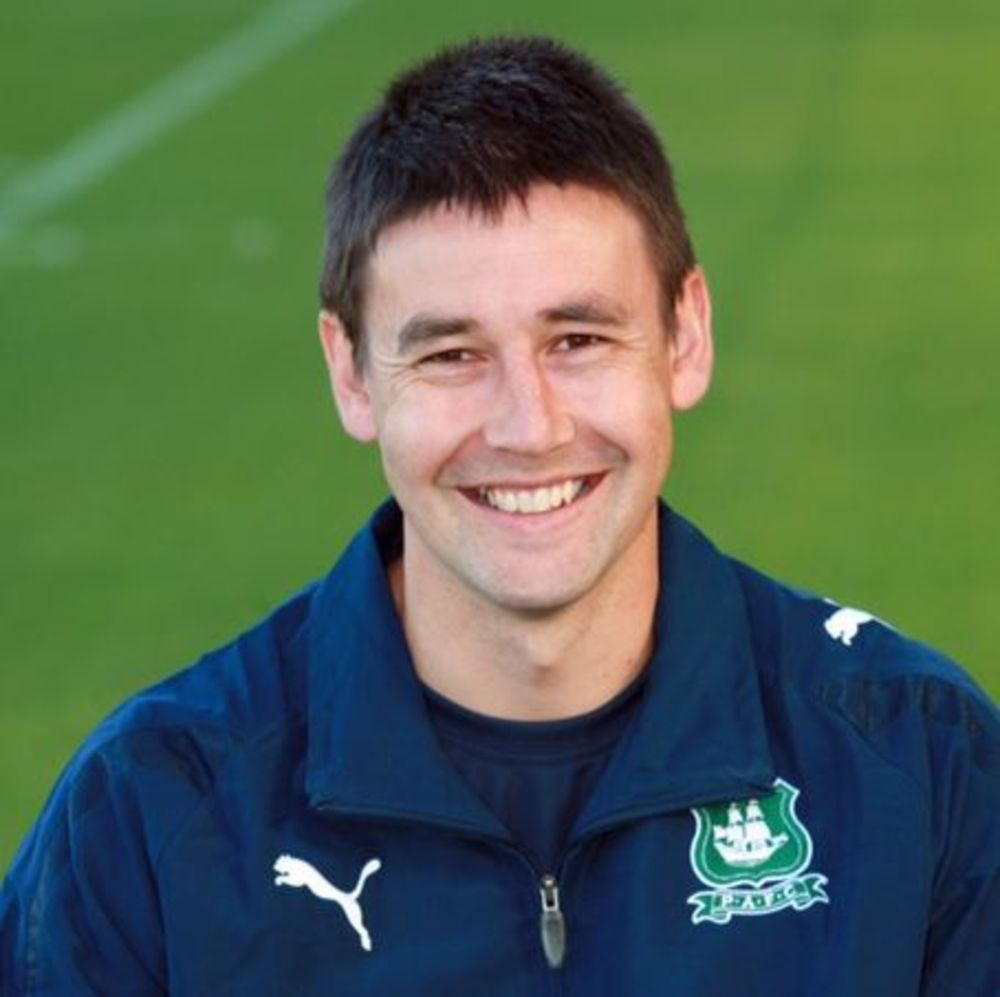
Ian Stonebridge
Ian Stonebridge was born in Lewisham, London and began his career as a trainee with Tottenham Hotspur.
He failed to make the grade at White Hart Lane and moved to Plymouth Argyle on a free transfer in July 1999.
He made an immediate impact at Home Park, despite his age, and his form led to an England under-18 international call-up.
He was the club's top scorer in 2000/01 - his second season - and played a vital role in the Division Three title win a year later.
Stonebridge also played an important part in the following two campaigns, culminating in the Division Two championship.
Despite the success, he was allowed to leave on a free transfer when Argyle were promoted and moved to Wycombe Wanderers.
He was a regular in the team during his first season at Wycombe, but moved to Torquay United on loan after losing his place the following year.
This loan spell was cut short due to injury and he struggled to regain full fitness over the next 18 months, eventually being forced to retire from the full-time game at just 25.
He went on to play briefly for Truro City in 2008 whilst the White Tigers were members of the Southern League South West.
Johhny Porteous
The start of Porteous's career was delayed by the Second World War and he joined his home-town club Motherwell at the age of 24 in 1945.
He left after two years without playing for the first team, joining Alloa Athletic, followed by his long-distance transfer to Plymouth Argyle in 1949.
Versatility was his most useful trait and he was a regular member of the team, in a variety of roles, for nearly seven years, making 214 appearances and scoring 13 goals.
He ended his professional career with two years at Exeter City and then finished his playing days with Truro City.
Barry Pierce
Pierce was an inside forward in the Football League for Crystal Palace, Millwall, York City and Exeter City, totalling 171 games and scoring 49 goals.
In non-League football for Truro City and Salisbury City, and was on the books of Everton and Stockport County without making a League appearance.
Freddie Fox
Goalkeeper who played junior football in Swindon before joining Swindon Town during World War One.
After the war, he was playing with Abertillery during 1920/21, before signing with Preston North End in August 1921.
He made just 3 League appearances before being transferred to Gillingham in July 1922.
After 106 appearances, he was placed on the transfer list in March 1925, and joined Millwall Athletic in April 1925.
After just 28 league outings, Halifax Town signed him in June 1927, where he made another 13 appearances.
He transferred to Brentford on transfer deadline day, March 1928, making 74 appearances.
In September 1931, he signed on with Truro CC, as he obtained the license of The Hope Inn.
This was followed up in October, when Cornish Senior League side Truro City signed him.
He was capped at full international level by England in a friendly against France in May 1925 whilst with Millwall Athletic.
Alec Hardie
Born in Kilsyth, the left-half played for Third Lanark in his native Scotland before moving to Charlton Athletic for 28 games in 1925.
Moving to Plymouth Argyle from The Valley the following year, he spent eight seasons at Home Park, with a reputation as a consistent performer, a crisp tackler and a smooth passer of the ball.
He left Argyle for Exeter City in 1933, where he finished his Football League career after 18 games, and ended his playing days with Truro City.
Vince Dillon
The oldest surviving ex-Bolton Wanderers player, Vince Dillon passed away at his home in Cornwall in 2005.
Manchester-born Dillon was a centre forward who made 17 appearances for the club shortly after the Second World War.
He moved on to Tranmere Rovers in 1951 and later had a spell at Truro City where he became their player manager in 1953.
He was also player-coach at Falmouth Town for the 1955/56 season.
Graeme Power
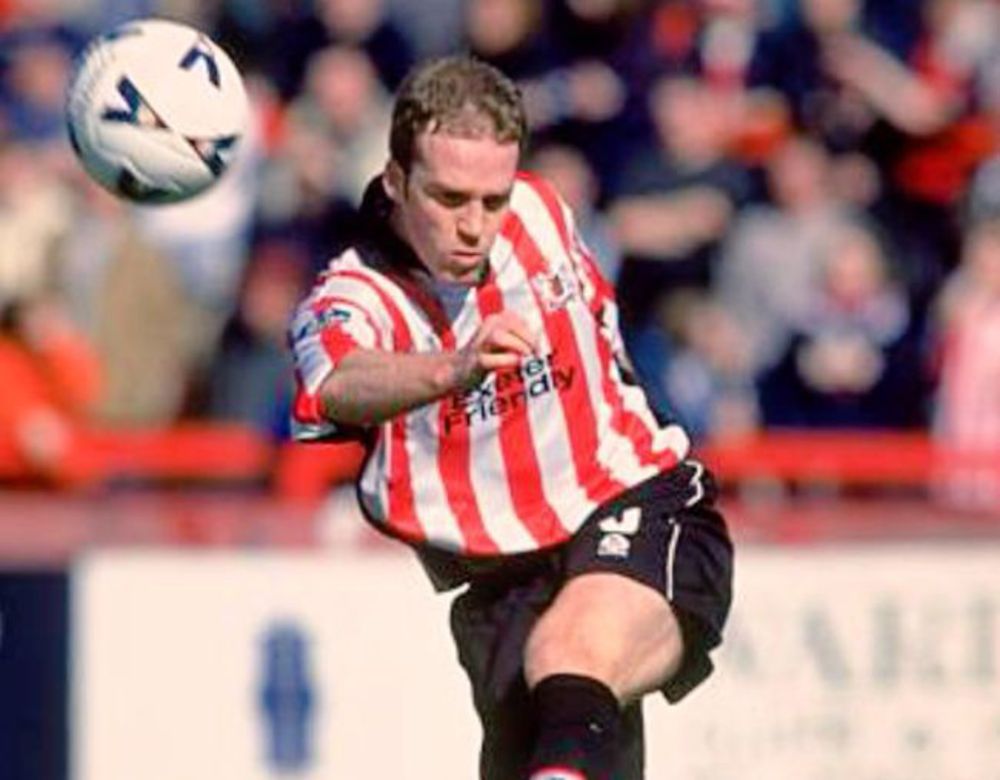
Graeme Power
An England Youth international, Power was a trainee with Queens Park Rangers, gaining a full contract in April 1995.
However, three months later he moved to Bristol Rovers where he made 26 l appearances in two seasons.
He then had a trial period with Norwich City and played two reserve team friendly matches for the Canaries, but failed to earn himself a contract.
Joining Exeter City on a free transfer in August 1998, Power was to enjoy the best spell of his career at St James’ Park.
After lining up for his League debut against Swansea City at The Vetch Field, he was a regular in the Grecians’ team and remained at the club until the end of the 2002/03 season, totalling 171 games and 2 goals.
Power then linked up with Bath City on trial, only to move to Tiverton Town in September 2003, although his stay was a short one, being released in January 2004 after 19 appearances.
He then signed for Weymouth, but after three months finally moved back to Bath City.
Whilst still involved at Exeter on a coaching basis, Power joined Truro City as a player in August 2006 and remained with them until December 2009, making a total of 75 appearances as well as helping the White Tigers to win the FA Vase at Wembley in his first season with the Cornishmen.
In 2023 Power was head of house and teaching PE at Paignton Academy.
Gerry Gazzard
Was known as the `Pirate of Penzance` in his playing days!
A likeable Cornishman who was discovered playing as an inside forward for Truro and then Penzance FC but had turned out on 20 occasions as an orthodox winger for the Cornwall County representative side.
He signed as a professional with West Ham United in May 1949 and made his first team bow against Luton Town on the opening day of the following season.
He made 37 appearances in 1949/50 and was one game short of being an ever-present the next campaign.
Troubled by cartilage injury, he transferred to Brentford in 1954 after losing his place in the Hammers` team after making 119 appearances and scoring 29 goals.
He played 13 times for the Bees, scoring 6 times, and then returned to Cornwall and played out the rest of his career as an amateur with Penzance.
Willie Low
An Aberdeen-born wing half who joined his home-town professional club Aberdeen from Aberdeen Shamrock in 1909 and spent five years there before joining South Shields in 1914.
The intervention of World War One saw him return to Aberdeen in 1916, and after the War he spent part of 1919/20 at Grimsby Town without making a first team appearance before joining non-League Gainsborough Trinity later in 1919.
He then joined Second Division Barnsley in 1920, making his League debut against Notts County that September and playing 35 times for The Tykes that season.
However he only played 8 more times in the autumn of 1921 before losing his place (possibly to injury), and he subsequently joined non-League Wombwell in 1923.
A year later, he moved to Cornwall and spent a couple of seasons with Truro City and later Mabe FC.
He passed away in Redruth, aged 70, in 1970.
Reg Jenkins
Millbrook-born, Jenkins didn’t play juvenile football after a prolific record at primary school, but at 16 he was asked at short notice to fill a gap in his local side.
From there he went to Truro City before joining Plymouth Argyle as a semi-professional in 1957.
He made his debut in 1958 and his first League goal was in a home fixture against Chesterfield - their goalkeeper that day was none other than England’s legendary World Cup winner Gordon Banks.
Jenkins was released by Argyle in December 1960 and joined Exeter City for the remainder of the season.
He then moved to Torquay United, making 88 League appearances in three years, but he really made his name in eight seasons at Rochdale, where he scored 119 goals in 305 League appearances, and was a member of their first ever promotion side.
He remains Dale's record goalscorer and in 2005 was voted the club's best ever player by its fans.
He passed away in his sleep aged 74 in 2013 while away recovering from a knee operation in Tenerife.
Jack Hodge
Born in Plymouth, began his career as an outside-right for local sides, including Truro City, Greenwaves, Halls Engineers, Pearn Bros and St Austell prior to signing for his home-town League club Plymouth Argyle for the 1933/34 season
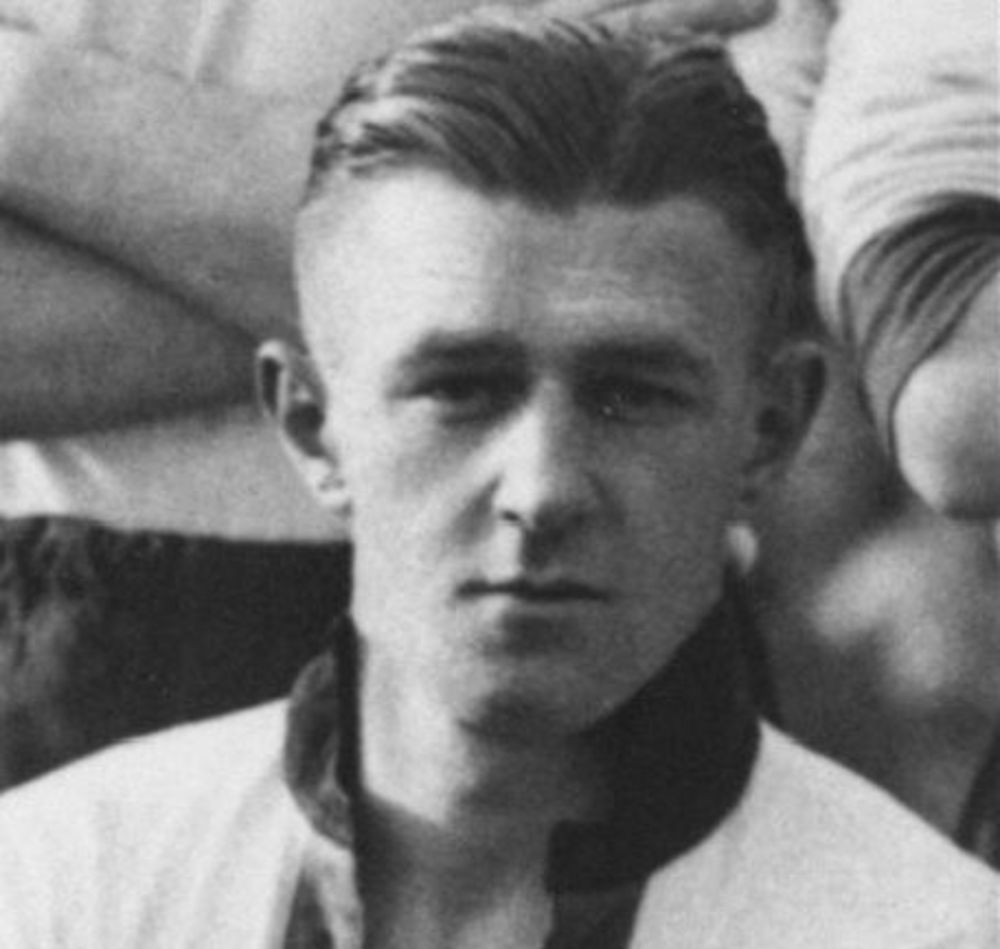
Jack Hodge
During the Second World War, Argyle played in the Football League South that season, against first-class opposition such as Arsenal, Chelsea, Tottenham Hotspur, Aston Villa and Wolves. It proved impossible for the Pilgrims to field a regular side; 72 players made an appearance and performances inevitably suffered.
From week to week the club called on Armed Services players, guest footballers from other League clubs and local amateurs to supplement its registered playing staff.
Hodge was one of 21 players whose only first team games for Argyle were in the Football League South season and who usually played in local football or for the Armed Forces.
Without breaking into the Home Park first team he moved on to Bristol City in 1934, scoring 8 times in 62 appearances before joining Luton Town, where he chalked up another 20 appearances.
From 1937 he spent two seasons with then-non-League Colchester United, becoming the first to make 100 starts for the club and scoring an impressive 42 goals in his total of 111 games.
In the summer of 1939 he headed for Hereford United, but when war was declared that September, he returned home to work in Devonport Dockyard.
He played for a variety of local sides whilst serving in the dockyard, including the Devonport Dockyard team, the Royal Naval Torpedo Depot (with whom he broke a leg), Plymouth City and Plymouth United.
It is also understood that he played for Chelmsford City for a spell in 1941; perhaps he was seconded to the extensive light-engineering facilities there.
Hodge finally got a second chance at Plymouth Argyle over a decade after his first when he signed from Plymouth United, registering with the Football League in November 1945.
He played 3 times but never on a winning side, in what was a wretched season for the club.
He also appeared once as a wartime guest for Torquay United that season.
Hodge died in March 1996 at the age of 90.
Kieffer Moore
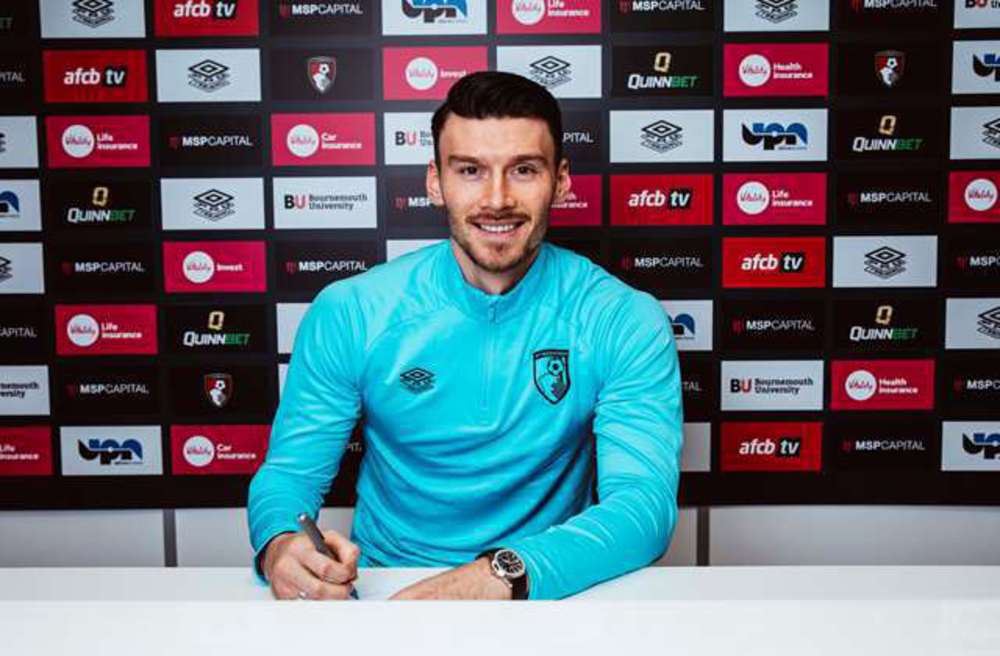
Kieffer Moore
Moore started his career with then-Conference South side Truro City, having as a teen been a part of Torquay United's youth system and playing for South Devon League Division Two club Paignton Saints.
He scored 13 goals in 22 games for the White Tigers but joined Dorchester Town in February 2013 due to Truro's continued financial difficulties, and he finished his first season in the Conference South with 20 goals.
His goalscoring record brought him to the attention of Yeovil Town for whom he signed in July 2013 and he went on to make over 50 appearances for the Glovers.
He then had a brief spell with Norwegian club Viking, before returning to English football with then-National League side Forest Green Rovers.
A loan stint with home-town club Torquay United saw Moore net 5 goals in 4 games, grabbing the attention of Championship outfit Ipswich Town.
After another loan to Rotherham United, where he scored a total of 13 goals in 20 matches, and permanent spells with Barnsley and Wigan Athletic, the forward signed for Cardiff City in August 2020.
A successful campaign in south Wales saw him be named as the PFA player of the month in February after scoring 5 goals in 7 matches.
He subsequently picked up the club’s player of the year award three months later.
Internationally, Moore received his first call up to the Welsh national team in May 2019, scoring his first goal for his country in the Euro 2020 qualifier against Slovakia.
He went on to represent Rob Page’s side at the Euro Finals, scoring the equaliser in a crucial 1-1 draw with Switzerland in the group stage.
Moore moved to AFC Bournemouth on transfer deadline day in January 2022, signing a three-and-a-half year deal at Vitality Stadium.
He made his debut for the Cherries against Birmingham City, coming on as a late substitute. However, whilst challenging for a ball, he suffered a broken foot, leaving him sidelined for several months.
Moore made his return against Swansea City in April 2022, coming on as a second half substitute with the Cherries trailing 3-0.
He made an immediate impact, scoring twice as the club secured a memorable 3-3 draw.
His third appearance for the club was a cameo that would go down in history.
Once again coming on as a second-half substitute against Nottingham Forest, he was on hand to tuck home from Philip Billing's clever free-kick and the goal secured automatic promotion to the Premier League.
Moore added a further goal in the final day victory over Millwall to make it 4 goals for the club in his opening 4 games.
The frontman played his part as Wales reached a first World Cup finals for 64 years, coming off the bench in a 1-1 draw with USA and starting group games against Iran and England in Qatar in 2022.
To date, he has won 32 Welsh international caps, scoring 9 times and also represented England C in 2016 whilst with Forest Green.

Most clubs are looking for volunteers. Find out more on the button below:
www.PitchingInVolunteers.co.ukAll the news and results in one place.
REGISTER